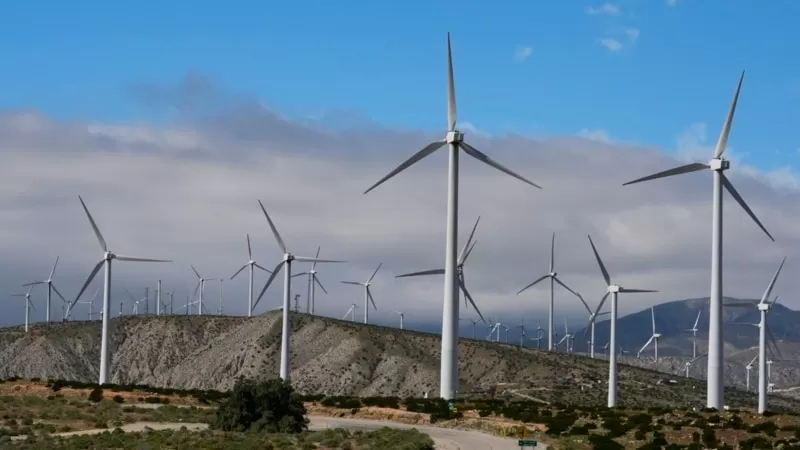Washington — The U.S. clean energy industry is booming, with job growth in 2023 surpassing the country’s overall job growth rate and unionization rates reaching a record high. This is according to the Energy Department’s latest report, which highlights the significant progress made in the clean energy sector.
The report states that employment in clean energy businesses, such as wind, solar, nuclear, and battery storage, grew by 142,000 jobs, a 4.2% increase from the previous year. This growth rate is more than double the overall U.S. job growth rate of 2% in 2023, demonstrating the strong demand for clean energy and the potential for further growth in the industry.
One of the most significant achievements highlighted in the report is the increase in unionization rates in the clean energy sector. For the first time, unionization in clean energy surpassed the rate in the wider energy industry, with a record high of 12.4%. This is a significant milestone and a testament to the hard work and dedication of clean energy workers.
The report attributes this increase in unionization to the growth in construction and utility industries, as well as recent legislation, including the bipartisan CHIPS Act and President Joe Biden’s Inflation Reduction Act. These measures have created a favorable environment for clean energy businesses to thrive, leading to more job opportunities and better working conditions for employees.
Betony Jones, the Energy Department’s head of energy jobs, emphasized the importance of this growth in construction jobs in clean energy. She stated that this trend is expected to continue for decades as the industry works towards building a sustainable and clean energy infrastructure. This not only provides job security for workers but also allows them to build a career in the industry.
The report also highlights the significant job growth in the solar industry, with employment in utility scale and rooftop solar growing by 5.3% and adding over 18,000 jobs. However, the report also notes that the solar installation industry in California, the country’s most populous state, has experienced a decline in jobs due to high interest rates and changes in net meter rates. This serves as a reminder that continued support and investment in the clean energy sector is crucial for its sustained growth.
In contrast, the report shows mixed results for new jobs in fossil fuels. While the natural gas workforce grew by 13.3%, jobs in petroleum fell by 6%. The decline in coal jobs also continued, with a decrease of 5.3% as power generation shifts towards cleaner sources such as gas, wind, and solar. This further highlights the need for a transition towards clean energy to combat climate change and create a more sustainable future.
White House climate adviser Ali Zaidi praised the report, stating that it demonstrates the administration’s commitment to pursuing both energy and climate security. The Biden administration has made it a priority to invest in clean energy and create new job opportunities in the sector, and this report is a testament to their efforts.
Despite the progress made, the report also highlights the need for more diversity in the clean energy workforce. Energy remains a predominantly male industry, with an average of 73% male workers compared to the national workforce average of 53%. The report notes that while women accounted for half of the energy jobs added in 2022, they only accounted for 17% of the jobs added in 2023. This highlights the need for more efforts to promote diversity and inclusivity in the clean energy sector.
In conclusion, the Energy Department’s report on the U.S. clean energy industry in 2023 is a testament to the significant progress made in the sector. With job growth surpassing the overall job growth rate and unionization rates reaching a record high, it is clear that the clean energy industry is a vital contributor to the country’s economy. The report also highlights the need for continued support and investment in the sector to ensure its sustained growth and to create a more sustainable future for all.


